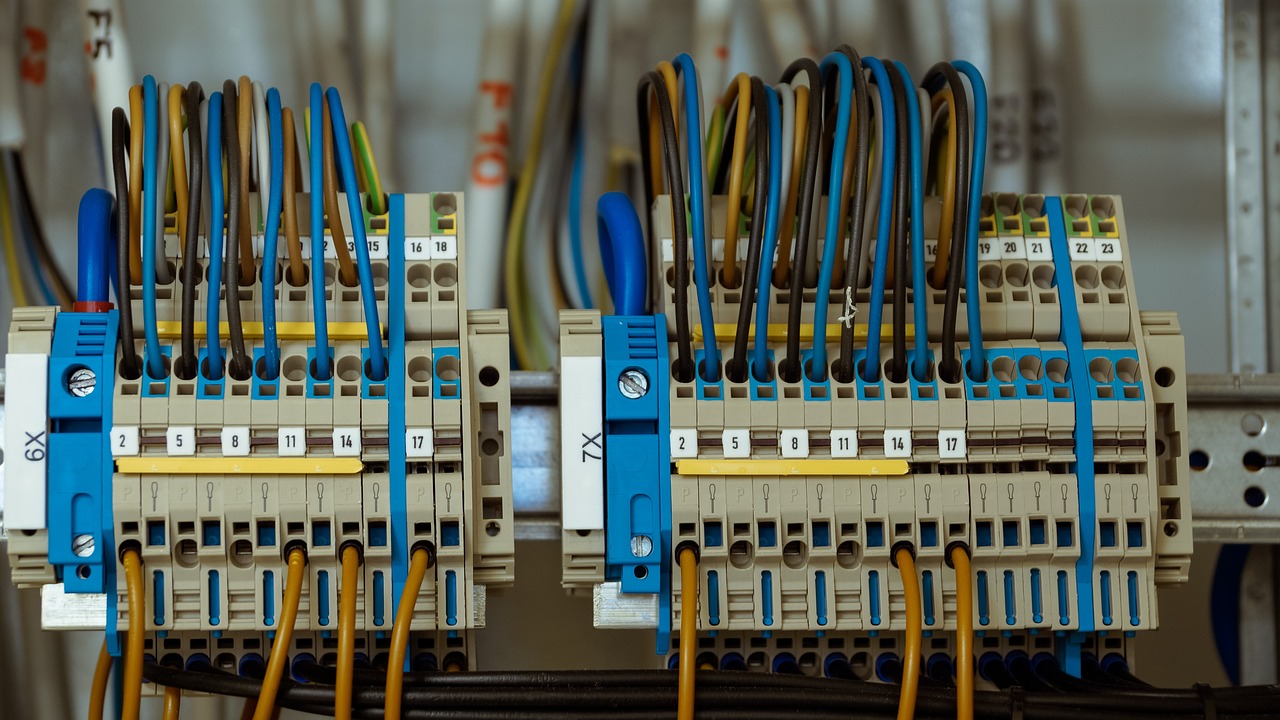Do you want to tackle a rewiring project for your home or business, but are unsure of how long it will take? Estimating the timeframe for a rewiring project can be a daunting task, but with the right knowledge and preparation, you can make an accurate estimation.
In this article, we will guide you through the steps to assess the scope of your rewiring project, plan for permits and inspections, choose the right wiring materials, and hire a professional electrician. Additionally, we will discuss the factors that can affect the timeframe of your project, so you can avoid surprises and delays along the way.
When it comes to rewiring, time is of the essence. Whether you need to update your electrical system to meet current building codes or want to improve the safety and efficiency of your property, you need to know how long the project will take.
By following the tips and tricks in this article, you can estimate the time required for your rewiring project with confidence. So, let’s get started!
Assessing the Scope of the Rewiring Project
You’ll need to take a walk-through of the entire building to determine the scope of the rewiring project, checking for any outdated or damaged wiring, and assessing the complexity of the electrical system. This will help you estimate the time required for the project.
In addition to identifying any obvious issues, you’ll also need to consider potential hidden wiring issues. As you assess the wiring, you’ll need to keep electrical safety considerations in mind. This means being aware of potential hazards, such as exposed wires or outdated electrical systems, and taking the necessary precautions to ensure the safety of yourself and anyone else who may be working on the project.
By carefully assessing the scope of the rewiring project and planning for potential hidden issues and electrical safety considerations, you can more accurately estimate the time required for the project.
Planning for Permits and Inspections
Don’t overlook the importance of obtaining permits and passing inspections to ensure a safe and successful rewiring job. Permit regulations vary by location, so it’s important to research and understand the requirements in your area.
These regulations may include obtaining permits for the work being done, submitting plans and drawings of the electrical system, and having inspections completed at various stages of the project.
Inspection timelines can also vary depending on the scope of the project and the regulations in your area. It’s important to plan for inspections and schedule them accordingly to avoid delays in the project timeline.
Keep in mind that failing an inspection can result in additional fees and delays, so it’s important to ensure that the work is up to code before scheduling an inspection.
By planning for permits and inspections, you can ensure that your rewiring project is completed safely and successfully.
Choosing the Right Wiring Materials
Choosing the right wiring materials is crucial for ensuring the longevity and safety of your home’s electrical system. You should consider cost and sustainability factors when making your decision.
Copper wiring is the most commonly used material due to its durability and conductive properties, but it can be expensive. On the other hand, aluminum wiring is cheaper but not as durable as copper and can cause issues with connectivity.
When it comes to sustainability, you can opt for eco-friendly wiring materials such as recycled copper or aluminum. These materials are just as effective as their non-recycled counterparts but have a lower impact on the environment. Additionally, you can choose wiring materials made from renewable resources like bamboo or hemp. These materials are becoming increasingly popular due to their sustainability and durability, making them a great choice for those who want to reduce their carbon footprint while ensuring the safety of their home’s electrical system.
Hiring a Professional Electrician
Hiring a professional electrician is essential for ensuring the safety and efficiency of your home’s electrical system. While it may be tempting to save money by attempting a rewiring project on your own, the risks of doing so far outweigh any potential benefits.
A professional electrician has the necessary expertise and experience to handle the complexities involved in rewiring a home, and can guarantee that the job is done correctly and up to code. Cost considerations shouldn’t deter you from hiring a professional electrician. In fact, doing so can save you money in the long run by preventing costly mistakes and ensuring that your home’s electrical system is working efficiently.
However, if you are determined to take on the project yourself, be aware of the risks involved. DIY alternatives are often not up to code, and can result in electrical hazards and fire hazards. Ultimately, it’s important to prioritize safety and efficiency when it comes to your home’s electrical system, and hiring a professional electrician is the best way to ensure both.
Factors that Can Affect the Timeframe of Your Project
If you want to get your electrical work completed quickly and efficiently, it’s important to be aware of the factors that can impact the timeframe of your project.
One of the most important factors that can affect the time required for a rewiring project is budget considerations. If you have a limited budget, it may take longer to complete the project because your electrician may need to work with cheaper materials or take a more manual approach to the work. On the other hand, if you have a larger budget, your electrician may be able to work more quickly by using higher-quality materials or more advanced tools.

Another important factor that can impact the timeframe of your project is safety precautions. Your electrician must take the necessary safety precautions to protect themselves and others from electrical hazards. This may involve shutting off power to certain areas of your home, using protective gear, and following strict safety protocols.
While these precautions may take some extra time, they are essential to ensuring that your rewiring project is completed safely and without any accidents or injuries. So, be sure to discuss safety measures with your electrician before they begin work on your project.
Frequently Asked Questions
What are the common mistakes people make during a rewiring project?
When rewiring, common mistakes include overestimating abilities and underestimating costs. Don’t assume you can handle everything and be realistic about the expenses. Get professional help if needed.
Can I do some of the rewiring tasks myself to save time and money?
You can do some DIY rewiring tasks to save time and money, but it’s important to weigh the cost benefit analysis. Consider your level of expertise and the potential risks involved before making a decision.
How do I know if my home needs rewiring or just minor repairs?
To determine if your home needs rewiring or just minor repairs, look out for signs of outdated electrical systems such as flickering lights, frequent tripping of circuit breakers, and burning smells. Consult an electrician for a professional assessment.
What are the safety precautions I should take during a rewiring project?
When rewiring your home, it’s crucial to prioritize safety. Ensure you have proper electrical training and always wear protective gear like gloves and goggles. Don’t take any risks with electricity.
How can I minimize the disruption to my daily routine during the rewiring project?
To minimize disruption during a rewiring project, consider staying elsewhere temporarily, setting up a temporary kitchen, and scheduling work during non-intrusive hours. Weigh the pros and cons of hiring professionals to ensure a timely and efficient project.
Conclusion
So there you have it – a comprehensive guide on estimating the time required for a rewiring project.
Remember, the first step is always assessing the scope of the project, which will help you plan for permits and inspections, choose the right wiring materials, and hire a professional electrician.
Keep in mind that there are several factors that can affect the timeframe of your project, such as the size of your home, the condition of the existing wiring, and the complexity of the job.
By taking all of these factors into account and working closely with your electrician, you can ensure that your rewiring project is completed on time and within budget.
Good luck!



